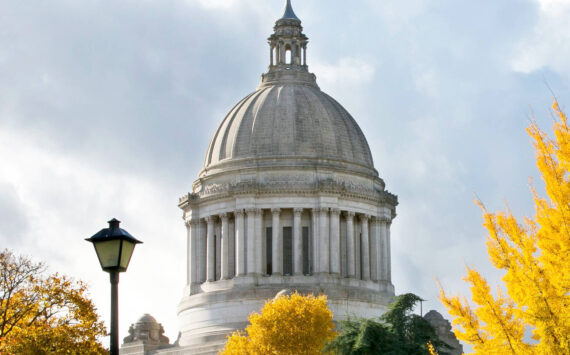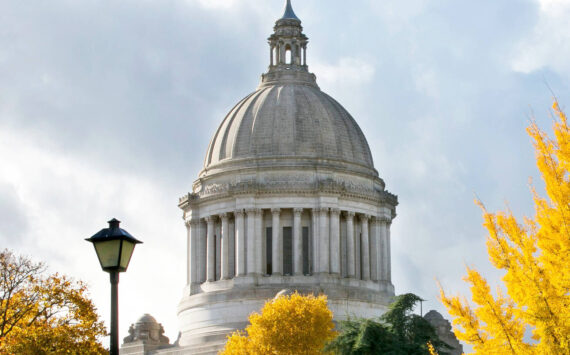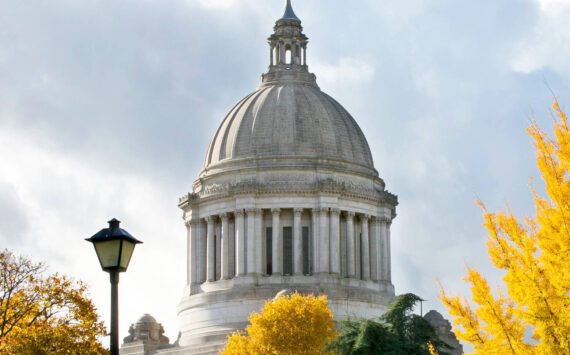*****EDITOR’S NOTE: This is a guest editorial written by Sam Reed, Washington Secretary of State, and Jan Walsh, Washington State Librarian*****
– – – – – – – – – – – – – – – – – – – – – – – –
As the state Legislature grapples with the daunting task of fixing a $2.6 billion operating budget deficit, we understand the challenges that lawmakers face.
There is plenty of pain to go around. That said, we implore the Legislature to not once again make our Washington State Library a budget casualty. It would be penny-wise and pound-foolish, and would unravel a significant service to state government, our local libraries and Washingtonians who increasingly rely on the support during these difficult times.
In her recently released budget proposal, Gov. Chris Gregoire would cut $2 million from the state library, resulting in one-third of library staff members losing their jobs.
Over the past decade, in good times and bad, the state library has been put through the budget wringer several times. One governor even proposed abolishing the state library. If Gov. Gregoire’s proposed cuts become reality, the state library’s budget will have been reduced by more than a third, and its staff level slashed by more than half since 1999.
Meanwhile, many other state agencies have seen their budgets grow steadily up to 2008. And now, the state library is facing brutal cuts just as needs for its services are greater than ever before.
The proposed cuts also could jeopardize federal grant funding for programs that help local libraries throughout Washington, especially those in small, rural towns. This would further hamper these libraries at a time when they face their own budget problems while accommodating greater use by their patrons.
The state library provides online programs that help Washingtonians. The state library has stepped up to help our unemployed and vulnerable population, creating the Hard Times Resource Guide (http://www.sos.wa.gov/library/hardtimes ), which helps people locate jobs, gain new skills and find educational opportunities.
It also provides information on housing, health, finances and other vital topics.
Since 2002, number of visitors to the state library has risen 22 percent, even though the library was moved from the state Capitol Campus to Tumwater. The number of books checked out has increased nearly 79 percent during this time, and Web site usage has skyrocketed, from roughly only 34,000 hits in 2002 to nearly 565,000 hits last year.
Our state library employees take great pride in serving the public and Washington’s library community, and it shows.
The library receives many calls and e-mails from patrons throughout Washington, saying how much they appreciate its collections, programs and prompt service.
Local librarians also praise our staffers for the great service, advice and tips they offer to their libraries.
Due to the latest round of proposed cuts, the library already has been forced to send out pink slips to a number of staffers, including some who work at the reference desk, which likely will result in slower service for patrons.
Other staff cuts will affect the preservation of old newspapers, which hurts our ability to document Washington history for students, genealogists and historians. Some of our prisons and mental hospitals in Washington will see library staff cuts.
And the Washington Talking Book and Braille Library in Seattle will have to cope with cuts to its braille staff and its lone children’s librarian.
These are painful cuts that we know will affect not just our staff but the patrons who rely on the library and its branches.
The Washington State Library is the oldest cultural institution in Washington, even older than our state itself, having been established soon after Washington became a territory in 1853.
More than 150 years later, the library continues to meet its vision: “To ensure that Washingtonians have access to the information they need today and to the history of Washington for tomorrow.”
When the state library was created, our government leaders valued and understood its importance. Even during the Great Depression in the 1930s, state government leaders protected the state library. They appreciated the importance of culture and heritage and of preserving books, documents and historical collections for all Washingtonians to use and enjoy.
Today, we call on our lawmakers to do likewise.




